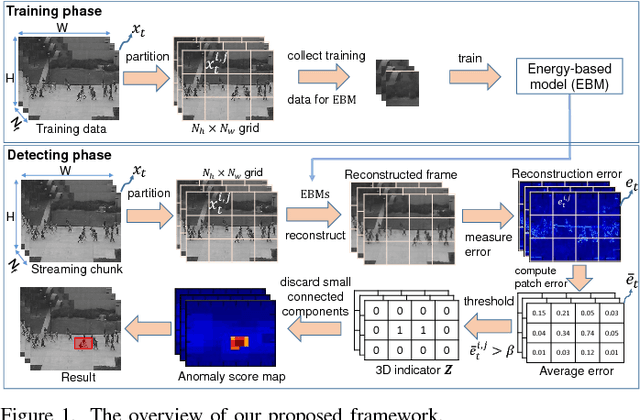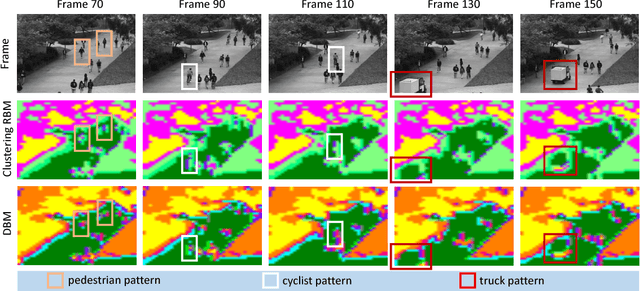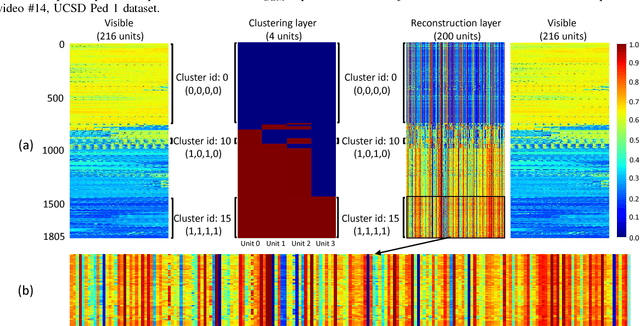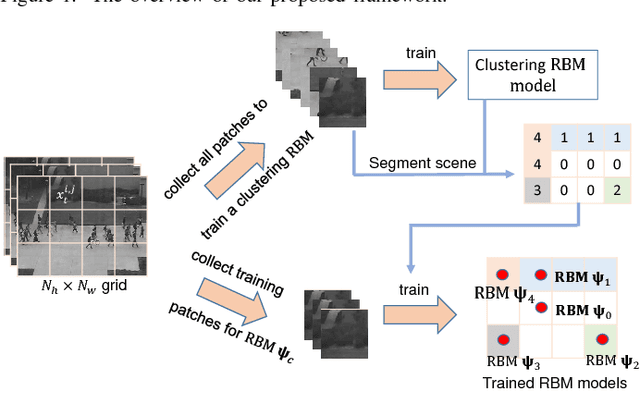Detection of Unknown Anomalies in Streaming Videos with Generative Energy-based Boltzmann Models
Paper and Code
Sep 29, 2018



Abnormal event detection is one of the important objectives in research and practical applications of video surveillance. However, there are still three challenging problems for most anomaly detection systems in practical setting: limited labeled data, ambiguous definition of "abnormal" and expensive feature engineering steps. This paper introduces a unified detection framework to handle these challenges using energy-based models, which are powerful tools for unsupervised representation learning. Our proposed models are firstly trained on unlabeled raw pixels of image frames from an input video rather than hand-crafted visual features; and then identify the locations of abnormal objects based on the errors between the input video and its reconstruction produced by the models. To handle video stream, we develop an online version of our framework, wherein the model parameters are updated incrementally with the image frames arriving on the fly. Our experiments show that our detectors, using Restricted Boltzmann Machines (RBMs) and Deep Boltzmann Machines (DBMs) as core modules, achieve superior anomaly detection performance to unsupervised baselines and obtain accuracy comparable with the state-of-the-art approaches when evaluating at the pixel-level. More importantly, we discover that our system trained with DBMs is able to simultaneously perform scene clustering and scene reconstruction. This capacity not only distinguishes our method from other existing detectors but also offers a unique tool to investigate and understand how the model works.
 Add to Chrome
Add to Chrome Add to Firefox
Add to Firefox Add to Edge
Add to Edge